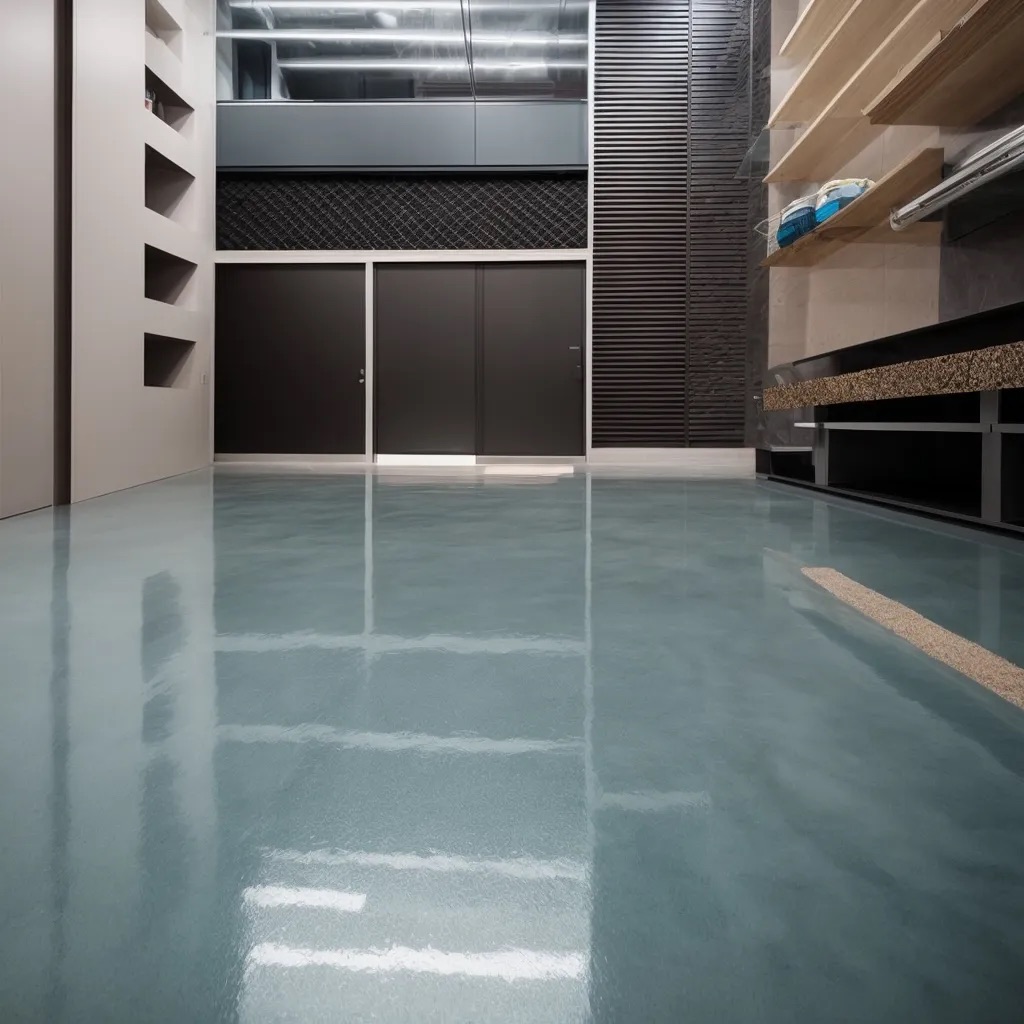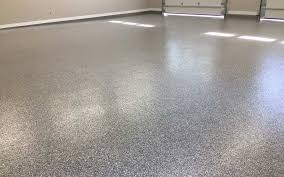Maintain Sterile Environments With Epoxy Flooring

Benefits of Epoxy Flooring
When choosing epoxy flooring for sterile environments, the benefits are numerous, including durability and easy maintenance. Epoxy flooring is known for its exceptional durability, making it a perfect choice for high-traffic areas in sterile environments. This type of flooring can withstand heavy machinery, equipment, and constant foot traffic without wearing down easily. Its ability to resist scratches, stains, and impact damage ensures a long-lasting solution that is cost-effective in the long run.
Additionally, epoxy flooring offers a wide range of aesthetic options to enhance the overall look of sterile environments. With various colors, patterns, and finishes available, you can customize the flooring to complement the existing design of the space. Whether you prefer a sleek, modern look or a more traditional aesthetic, epoxy flooring can be tailored to meet your specific requirements. The seamless application of epoxy creates a smooth and uniform surface, adding a touch of sophistication to sterile environments.
Furthermore, the easy maintenance of epoxy flooring simplifies cleaning routines in sterile environments. Its non-porous surface prevents bacteria, dust, and other contaminants from seeping into the flooring, making it hygienic and easy to clean. Regular sweeping and mopping are usually sufficient to keep the floor looking pristine, saving time and effort in maintenance tasks. Overall, the durability and aesthetic versatility of epoxy flooring make it a practical and visually appealing choice for sterile environments.
Enhanced Hygiene Standards
To maintain the high hygiene standards necessary in sterile environments, consider the antimicrobial properties of epoxy flooring. Epoxy flooring can play a crucial role in enhancing hygiene standards by providing a seamless and non-porous surface that is easy to clean and disinfect. This type of flooring can withstand frequent sanitization practices without deteriorating, making it an ideal choice for environments where infection control is paramount.
In sterile environments such as hospitals, laboratories, and food processing facilities, where preventing the spread of bacteria and other pathogens is essential, epoxy flooring offers a hygienic solution. By choosing epoxy flooring with antimicrobial additives, you can further boost its ability to inhibit the growth of microorganisms, contributing to a cleaner and safer environment.
When it comes to infection control, every precaution matters. Epoxy flooring not only supports the overall cleanliness of a space but also helps prevent the accumulation of harmful bacteria that could compromise the sterility of the environment. By incorporating epoxy flooring into your facility, you are taking a proactive step towards maintaining enhanced hygiene standards and promoting a healthier setting for everyone involved.
Resistance to Bacteria Growth
Consider the seamless and non-porous surface of epoxy flooring in sterile environments for its resistance to bacteria growth. Epoxy flooring plays a crucial role in bacteria prevention and infection control due to its impermeable nature. The lack of grout lines or cracks where bacteria could harbor makes epoxy flooring an excellent choice for environments where cleanliness is paramount.
In sterile settings, such as hospitals or laboratories, preventing the growth and spread of bacteria is essential. Epoxy flooring provides a smooth surface that is easy to clean and disinfect, reducing the risk of bacterial contamination. By eliminating areas where bacteria can hide and multiply, epoxy floors contribute significantly to maintaining a hygienic environment.
The non-porous nature of epoxy flooring prevents liquids and bacteria from seeping into the surface, further enhancing its resistance to bacteria growth. This feature not only simplifies cleaning procedures but also ensures that the risk of bacterial cross-contamination is minimized.
In environments where infection control is a top priority, epoxy flooring stands out as a reliable solution. Its seamless and durable surface not only enhances the overall cleanliness of the environment but also contributes to creating a safer space for both patients and staff. Choose epoxy flooring for its exceptional resistance to bacteria growth and contribute to maintaining sterile environments effectively.
Easy Cleaning and Maintenance
Maintaining epoxy flooring in sterile environments is a breeze due to its smooth surface that requires minimal effort for cleaning and maintenance. The seamless nature of epoxy floors leaves no room for dirt, dust, or bacteria to hide, making cleaning a quick and efficient task. With just a simple sweep or mop, you can easily remove any debris or spills, keeping the environment spotless without the need for harsh chemicals or extensive scrubbing.
Epoxy flooring’s non-porous surface is resistant to stains and liquids, allowing for easy cleanup of spills before they can seep in and cause damage. The durable nature of epoxy also means that regular maintenance tasks, such as sweeping or mopping, are all that’s needed to keep the floors looking pristine. This simplicity in cleaning not only saves time but also reduces the need for costly cleaning products and labor hours.
To ensure the longevity of your epoxy floors, regular maintenance routines should be established to prevent the buildup of grime or dirt. By incorporating simple cleaning habits into your routine, you can preserve the cleanliness and sterility of the environment effortlessly. With epoxy flooring, maintaining a sterile space has never been easier.
Safety and Well-being Focus
Focusing on safety and well-being is paramount when considering epoxy flooring for sterile environments. Epoxy flooring plays a crucial role in infection control due to its seamless and non-porous surface, which prevents bacteria and germs from penetrating the floor. This impermeable characteristic makes it easier to maintain a clean and hygienic environment, ultimately reducing the risk of infections spreading within the facility.
In sterile environments, clean air is essential for the well-being of patients, staff, and visitors. Epoxy flooring contributes to promoting clean air by being resistant to mold, mildew, and moisture. These flooring systems are also low in volatile organic compounds (VOCs), which helps in maintaining high indoor air quality. By choosing epoxy flooring, you are ensuring that the air within the facility remains free from harmful contaminants, creating a healthier environment for everyone.
Moreover, the smooth and level surface of epoxy flooring minimizes tripping hazards, further enhancing the safety of the space. This feature is especially important in sterile environments where quick and unobstructed movement is vital. By prioritizing safety and well-being through the installation of epoxy flooring, you are not only creating a clean and sterile environment but also contributing to the overall health and comfort of those within the facility.

Why Epoxy Flooring is Perfect for Phoenix: Benefits, Options, and Installation Tips
Phoenix, Arizona, is known for its scorching summers and intense heat. Such extreme temperatures can wreak havoc on many types of flooring. That’s why epoxy flooring has emerged as the go-to option for homes and businesses in this sun-baked region. Offering...

Choosing the Best Epoxy Garage Floor Coating for Hot Climates: A Complete Guide
Epoxy garage floor coatings are renowned for their durability, versatility, and aesthetic appeal. However, when it comes to hot climates, the choice of epoxy flooring becomes even more crucial. High temperatures can affect the performance of floor coatings, so...

Everything You Need to Know About Epoxy Flooring for Garages: Options, Coatings, and Benefits
When it comes to transforming your garage into a functional and aesthetically pleasing space, few solutions are as effective as epoxy flooring. Offering a blend of durability, versatility, and style, epoxy coatings are becoming the go-to choice for homeowners looking...

The Ultimate Guide to Driveway Coating: Costs and Top Options for 2025
In 2025, homeowners are more discerning than ever when it comes to enhancing the curb appeal and longevity of their properties. One of the most effective ways to achieve this is through driveway coating. Whether you’re looking to protect your driveway from the...

Finding the Best Commercial Epoxy Flooring in Mesa, Arizona: Costs, Options, and Benefits
Epoxy flooring has become a top choice for commercial properties across the United States, especially in cities like Mesa, Arizona. Known for its durability, aesthetic appeal, and low maintenance, commercial-grade epoxy flooring is an ideal solution for businesses...
